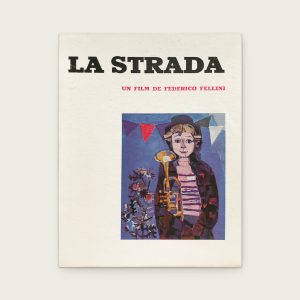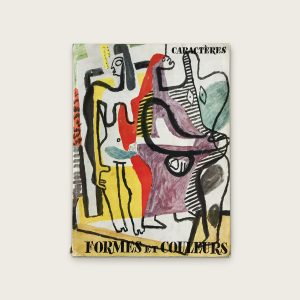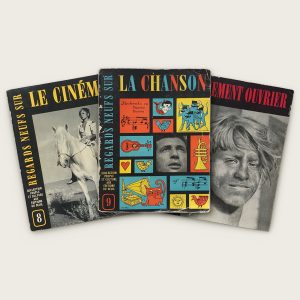[Chris Marker] Cahiers du Cinéma N°22, N°25, N°27 [1953]
Edited by André Bazin, Jacques Doniol-Valcroze, Joseph-Marie Lo Duca
€85,00
incl. VAT plus Shipping Costs
Paris: Les Éditions de L’Ètoile, 1953. 8vo (26×18,5cm) each, illustrated wrappers. 64pp each. Text in French. Moderate edge wear to wrappers, pages with infrequently mild toning and creasing to margins. Very good.
Cahiers du Cinéma was one of the most influential magazines in the history of film, founded in 1951 by André Bazin, Jacques Doniol-Valcroze, and Joseph-Marie Lo Duca. Before making their own films, these young critics attacked traditional French cinema in their writings as “le cinéma de papa” and praised the director as the individual auteur of the film. Chris Marker began writing for Cahiers du Cinéma in the early 1950s, where he made his first attempts as film critic. When he toured Central and North America on behalf of UNESCO in 1953, he wrote three in-depth articles on developments in U.S. and Mexican cinema: Lettre de Mexico; Lettre de Hollywood. Sur trois dimensions et une quatrième; and Le Cinérama.
Cahiers du Cinéma, N°22, Avril 1953:
With Jacques Tati’s Les Vacances de Monsieur Hulot on its cover, reviewed by Serge Parmion, this issue also contains André Bazin fantastic essay A propos de Cannes on occasion of the forthcoming 1953 Cannes Festival, and Chris Marker’s Lettre de Mexico, in which he reports on the struggle of the Mexican cinema.
Cahiers du Cinéma, N°25, Juillet 1953:
Opening with a note in the editorial section announcing the death of the legendary director, writer and actor Vsevolod Pudovkin, the issue includes writings by André Bazin, François Truffaut, and Chris Marker’s Lettre de Hollywood.
Cahiers du Cinéma, N°27, Octobre 1953:
This issue includes a collective review by André Bazin, Michel Mayoux and Jean José Richer about the film Ugetsu, directed by Kenji Mizoguchi, which was awarded with the Silver Lion at the Venice Film Festival 1953. In Petit Dictionnaire Pour Venise all three critics agreed with the jury’s decision and hailed the film, as “one of the most intellectually stimulating films we saw”, along with Antonioni’s Vinti and Pudovkin’s Vasili’s Return. Chris Marker’s text Le Cinérama is a exploration of the latest technology at the time, a prototype of what Imax has become. This new widescreen technology toured around the world, accompanied with the film This Is Cinerama, a demonstration of what is now possible.
This three issues are an important set of Chris Marker’s writings at Cahiers du Cinéma.
![[Chris Marker] Cahiers du Cinéma N°22, N°25, N°27 [1953]](https://chunkingbooks.com/wp-content/uploads/2021/02/cahiersducine_01.jpg)
![[Chris Marker] Cahiers du Cinéma N°22, N°25, N°27 [1953] - Image 2](https://chunkingbooks.com/wp-content/uploads/2021/05/cahiersducine_02.jpg)
![[Chris Marker] Cahiers du Cinéma N°22, N°25, N°27 [1953] - Image 3](https://chunkingbooks.com/wp-content/uploads/2021/05/cahiersducine_03.jpg)
![[Chris Marker] Cahiers du Cinéma N°22, N°25, N°27 [1953] - Image 4](https://chunkingbooks.com/wp-content/uploads/2021/05/cahiersducine_04.jpg)
![[Chris Marker] Cahiers du Cinéma N°22, N°25, N°27 [1953] - Image 5](https://chunkingbooks.com/wp-content/uploads/2021/05/cahiersducine_05.jpg)
![[Chris Marker] Cahiers du Cinéma N°22, N°25, N°27 [1953] - Image 6](https://chunkingbooks.com/wp-content/uploads/2021/05/cahiersducine_06.jpg)
![[Chris Marker] Cahiers du Cinéma N°22, N°25, N°27 [1953] - Image 7](https://chunkingbooks.com/wp-content/uploads/2021/05/cahiersducine_07.jpg)

![Esprit [9 issues 1946-1950] [Chris Marker]](https://chunkingbooks.com/wp-content/uploads/2021/06/esprit_1-300x300.jpg)

